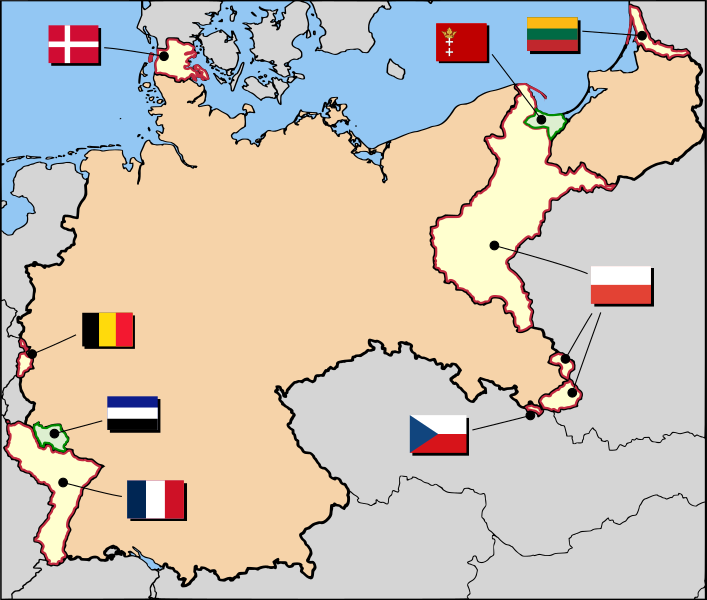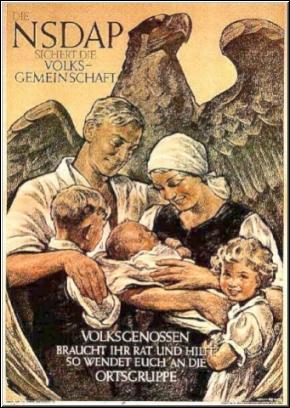The Deal Itself
In
1919, the final version of the treaty in Versailles was signed by two German representatives.
This treaty involved the following:
- -Limitations on the German military [not just in numbers, but
weapons as well]
 |
| New Weimar Republic |
- -Forfeit of claimed lands: Austro-Hungary, Sweden, Poland, Lithuania
- -War Reparation Payments [20 Billion]
t Implications
The treaty
devastated the German economy. Struggle over power began as the old Germany
lost all global political ground. The new Weimar Republic sought to stabilize its
country. The DVP, Deutsche Volkspartei,
promised Weimar an industrial wave and to represent a constitution, system of government.
The important SPD, Social Democratic Party, was influential in holding the country
together. Both parties politically struggled for what was to come in Weimar. This
eventual rise and fall of the Weimar Republic, 1924-1933, led to disastrous
events.
Rise of NSDAP
After
the Great World War, the Jewish population became the scapegoats of the severe
loss for Germany. The turmoil caused by the Treaty led the way for Hitler’s
totalitarian ideals to spread. Under
the two main parties lied the NSDAP, National Socialist German Worker’s Party.
This party, while having undertones of racist beliefs towards Jews, appealed to
the middle class of Germany.
When the Republic
began to fail in 1933, Hitler’s persuasive promises influenced a scared nation
to follow him. In 1932 the election of Reichstag, reflected the mood of this
broken nation.
The NSDAP
had “doubled it already substantial percentage of the
vote”. IN 1933 the fall of Weimar Republic, lead the way for the NSDAP, most
popular party at this time, to take control.
 |
| NSDAP in 1921- the Beginning |
The Treaty of Versailles led to the rise of the
NSDAP
After reading these three chapters, it is my opinion that
the treaty contributed to the rise of the NSDAP. This may be evident, yet I
will explain anyway. The loss of the Great War left Germany in a dire state.
Without adding the reparations, annexations, and limits on manufacturing,
Germany already lost much of its men. The cost of the war alone left Germany in
debt. Now adding the limited means of rebuilding, along with the reparations
due, Germany had little hope of maintaining itself. Building upon these costs, the German people felt influenced by the
worker’s party, which promised them a brighter tomorrow. In drawing upon the League of Nations peace treaty, complete blame may not rest on the German people alone. Unfair releasal from the constraints of the treaty, lead to the damaged economy, and need for a party to correct these issues. And in the eyes of the German people of the 1930's, that party was the NSDAP.
 |
| NSDAP Propaganda |
No comments:
Post a Comment